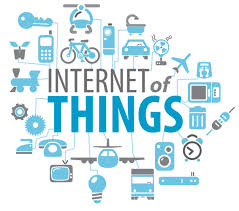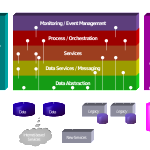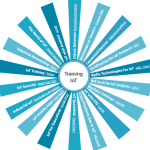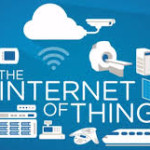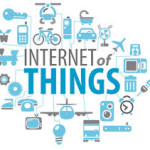The B2B Impact of IoT
The latest statistics show that IoT will impact the economy by approximately 4-11 trillion dollars by the year 2025 that has increased the interest of investors in IoT. There are specific markets which hold huge returns for the investors, particularly:
- The medical industry – doctors, hospitals (Proteus ingestible pill sensor, BeClose system, BodyGuardian)
- The car industry – connected cars
- Smart power utilities – greater security and better service to people (smart meter analytics, WICED Sense Kit)
- First response and emergence – coordinated response and saves time and provides better information (CAD system )
- Farming – less water, better food (wireless sensor monitoring, UAV sensor platform)
The use of connected things will tremendously transform the operations in all these verticals, for the better; saving and generating greater revenues for everyone involved.
According to the IOT 2016 report by Verizon’s State of the Market, B2B ventures are leading innovation and outperformed consumer startup by 75% in 2015. The report also estimated that in IoT startups focused on enterprises, the venture capital funding will increase in 2016 by double or triple amount. McKinsey’s reported similar results, reporting an estimated 70% of the IoT value to be produced by B2B applications. It’s easy to understand why organizations such as Cisco, GE, Siemens and other pioneers have initiated heavy investments in IoT growth and advancement. Still, the question is what IoT stands for everyone else? In the current age, what should organizations be doing to reap benefits from this technology shift?
McKinsey’s IoT report proves to be very helpful in this context: the key takeaways from the report that B2B companies should be aware of are:
- Internet of Things is a data banquet, however, most companies aren’t feasting on what’s already on their plates
The key benefit of IoT is an enriched data stream available to support decision making within companies supported by data. However, businesses aren’t utilizing more than 1% of data currently available in decision making. The biggest challenge faced by companies is to interpret ample amounts of data and comprehending its meaning. Smart businesses will take the initiative of investing in developing modeling capabilities and data analytics that will effectively support the decision-making needs of the business in long-term.
- Redefining the ways of earning and retaining customer trust and loyalty
The compatibility of products and services of businesses with similar services and devices has a significant impact on consumer satisfaction, along with systems and devices interoperability that accounts for 40% of IoT’s potential value. With the increasing connectivity of things, customers/ clients will continue to anticipate that their devices will seamlessly fit in the technological ecosystem.
- Increasing Need of Security and Privacy
The increasing number of devices and systems that are connected creates greater opportunities of security/ privacy breach. Protecting networks and data from cybercrime becomes paramount as all the products/ services and devices become interwoven.

